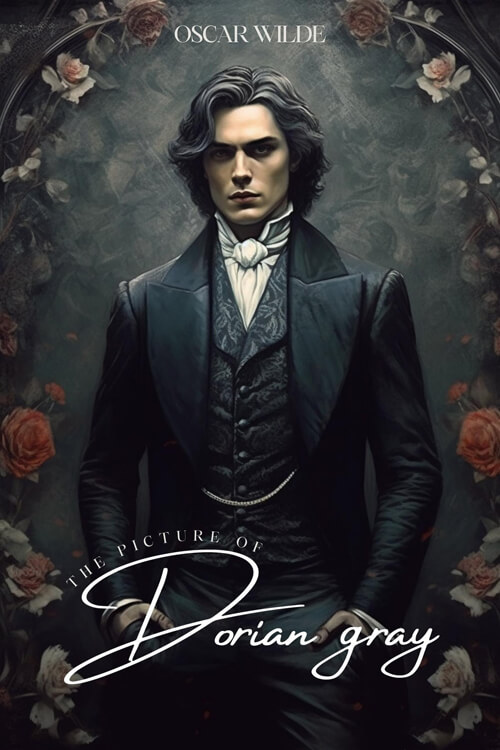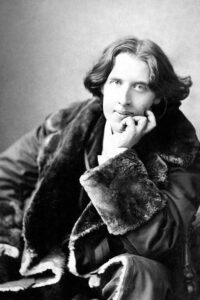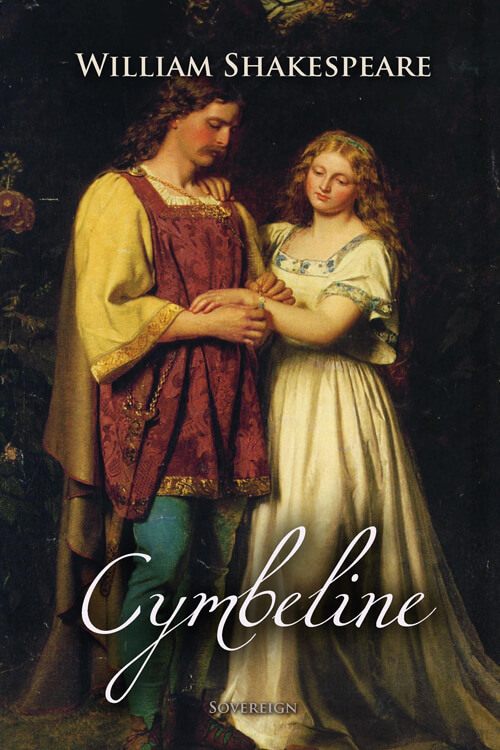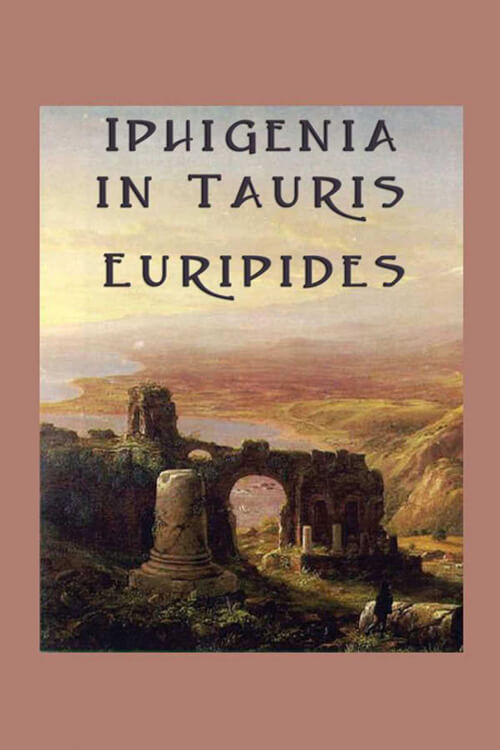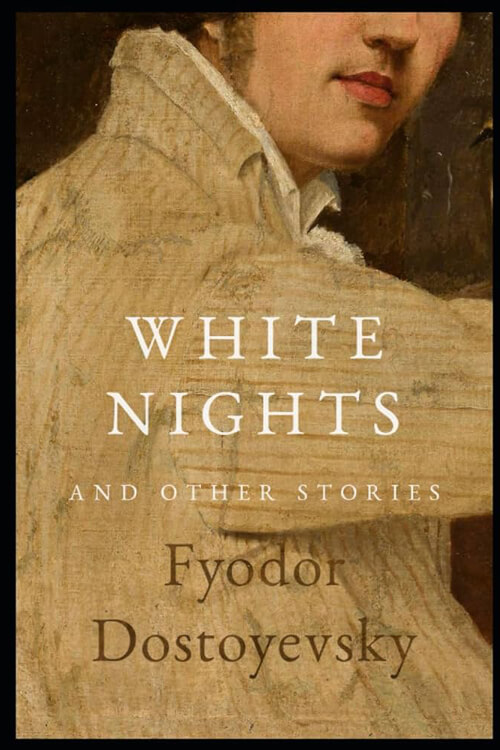
The picture of Dorian Gray
The studio was filled with the rich odor of roses, and when the light summer wind stirred amidst the trees of the garden, there came through the open door the heavy scent of the lilac, or the more delicate perfume of the pink-flowering thorn. From the corner of the divan of Persian saddle-bags on which he was lying, smoking, as was his custom, Innumerable cigarettes, Lord Henry Wotton could just catch the gleam of the honey-sweet and honey-colored blossoms of a laburnum, whose tremulous branches seemed hardly able to bear the burden of a beauty so flame-like as theirs; and now and then the fantastic shadows of birds in flight flitted across the long tussore-silk curtains that were stretched in front of the huge window, producing a kind of momentary Japanese effect, and making him think of those pallid jade-face painters of Tokio who, through the medium of art that is necessarily immobile, seek to convey the sense of swiftness and motion. The sullen murmur of the bees shouldering their way through the long unmown grass, or circling with monotonous insistence around the dusty gilt horns of the straggling woodbine, seemed to make the stillness more oppressive. The dim roar of London was like the bourdon note of a distant organ.
In the center of the room, clamped to an upright easel, stood the full-length portrait of a young man of extraordinary personal beauty, and in front of it, some little distance away, was sitting the artist himself, Basil Hallward, whose sudden disappearance some years ago caused, at the time, such public excitement, and gave rise to so many strange conjectures.
As the painter looked at the gracious and comely form he had so skilfully mirrored in his art, a smile of pleasure passed across his face, and seemed about to linger there. But he suddenly started up, and, closing his eyes, placed his fingers upon the lids, as though he sought to imprison within his brain some curious dream from which he feared he might awake.
” It is your best work, Basil, the best thing you have ever done,” said Lord Henry, languidly. “You must certainly send it next year to the Grosvenor. The Academy is too large and too vulgar. Whenever I have gone there, there have been either so many people that I have not been able to see the pictures, which was dreadful, or so many pictures that I have not been able to see the people, which was worse. The Grosvenor is the only place.” “I don’t think I shall send it anywhere,” he answered, tossing his head back in that odd way that used to make his friends laugh at him at Oxford.” No: I won’t send it anywhere.”
Lord Henry elevated his eyebrows and looked at him in amazement through the thin blue wreaths of smoke that curled up in such fanciful whorls from his heavy opium-tainted cigarette. ” Not send it anywhere? My dear fellow, why? Have you any reason? What odd chaps you painters are! You do anything in the world to gain a reputation. As soon as you have one, you seem to want to throw it away. It is silly of you, for there is only one thing.
In the world worse than being talked about, and that! Is not being talked about. A portrait like this would set you far above all the young men in England, and make the old men quite jealous if old men are ever capable of any emotion.”
” I know you will laugh at me,” he replied, ” but I really can’t exhibit it. I have put too much of myself into it.” Lord Henry stretched himself out on the divan and laughed. ” Yes, I knew you would; but it is quite true, all the same.”
” Too much of yourself in it Upon my word, Basil, I didn’t know you were so vain; and I really can’t see any resemblance between you, with your rugged strong face and your coal-black hair, and this young Adonis, who looks as if he was made out of ivory and rose-leaves. Why, my dear Basil, he is a Narcissus, and you well, of course, you have an Intellectual expression and all that. But beauty, real beauty, ends where an intellectual expression begins. Intellect is in itself a mode of exaggeration, j and destroys the harmony of any face. The moment one sits down to think, one becomes all nose, or all forehead, or something horrid. Look at the successful men in any of the learned professions. How perfectly hideous they are Except, of course, in the Church. But then in the Church, they don’t think. A bishop keeps on saying at the age of eighty what he was told to say when he was a boy of eighteen, and as a natural consequence, he always looks delightful.
Read or download Book
Oscar Wilde
Oscar Wilde was born at 21 Westland Row, Dublin (now home of the Oscar Wilde Centre, Trinity College), the second of three children born to an Anglo-Irish couple: Jane, née Elgee, and Sir William Wilde.
Biography.
Oscar was two years younger than his brother, William (Willie) Wilde. Jane Wilde was a niece (by marriage) of the novelist, playwright, and clergyman Charles Maturin (1780–1824), who may have influenced her literary career. She believed, mistakenly, that she was of Italian ancestry, and under the pseudonym “Speranza” (the Italian word for ‘hope’), she wrote poetry for the revolutionary Young Irelanders in 1848; she was a lifelong Irish nationalist. Jane Wilde read the Young Irelanders’ poetry to Oscar and Willie, inculcating a love of these poets in her sons. Her interest in the neo-classical revival showed in the paintings and busts of ancient Greece and Rome in her home. Sir William Wilde was Ireland’s leading oto-ophthalmologic (ear and eye) surgeon and was knighted in 1864 for his services as medical adviser and assistant commissioner to the censuses of Ireland. He also wrote books about Irish archaeology and peasant folklore. A renowned philanthropist, his dispensary for the care of the city’s poor at the rear of Trinity College, Dublin (TCD), was the forerunner of the Dublin Eye and Ear Hospital, now located at Adelaide Road.
On his father’s side, Wilde was descended from a Dutchman, Colonel de Wilde, who went to Ireland with King William of Orange’s invading army in 1690, and numerous Anglo-Irish ancestors. On his mother’s side, Wilde’s ancestors included a bricklayer from County Durham, who emigrated to Ireland sometime in the 1770s. Wilde was baptized as an infant in St. Mark’s Church, Dublin, the local Church of Ireland (Anglican) church. When the church was closed, the records were moved to the nearby St. Ann’s Church, Dawson Street. Davis Coakley mentions a second baptism by a Catholic priest, Father Prideaux Fox, who befriended Oscar’s mother c. 1859. According to Fox’s testimony in Donahoe’s Magazine in 1905, Jane Wilde would visit his chapel in Glencree, County Wicklow, for Mass, and would take her sons with her. She asked Father Fox in this period to baptize her sons.

